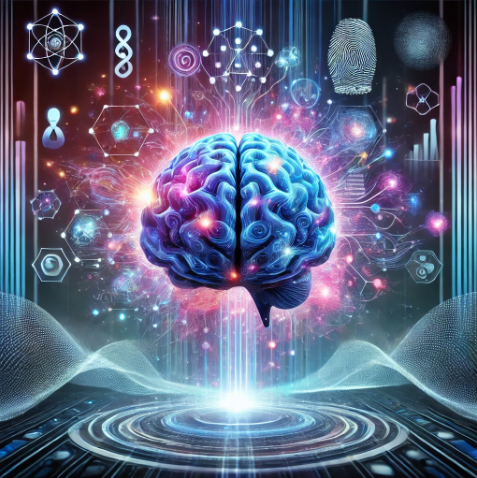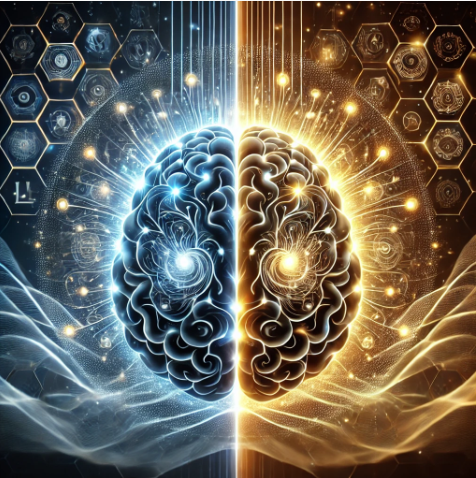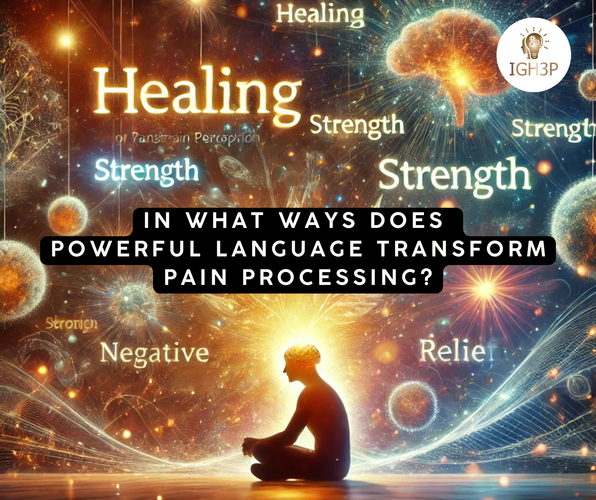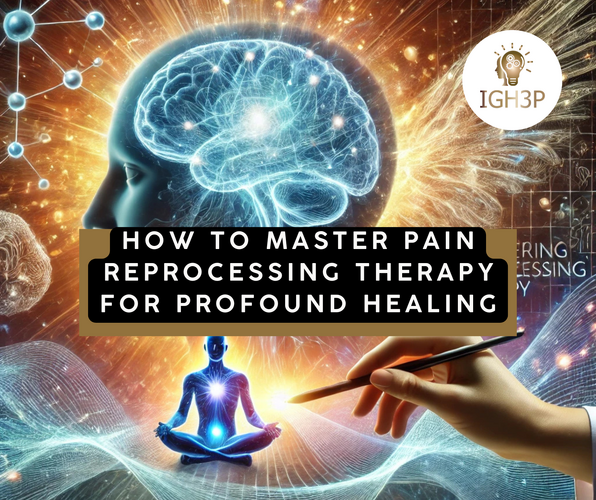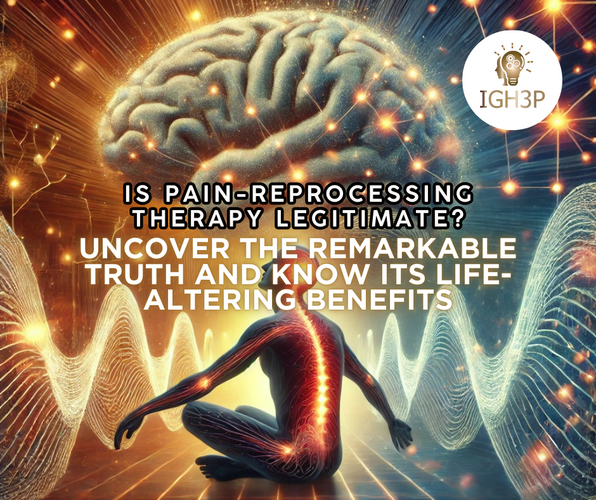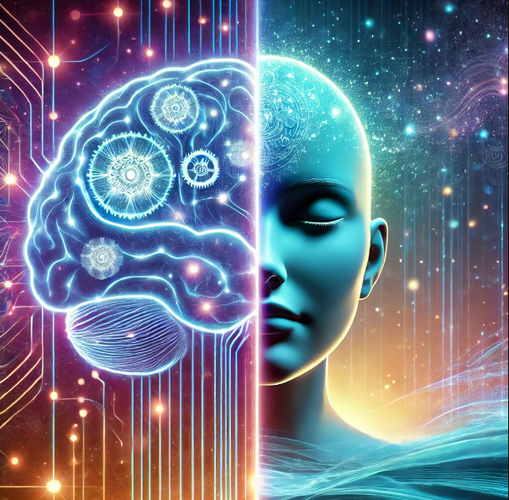Blog
neuroscience
Mastering Emotional Intelligence with Neuro-Linguistic Psychology: A Path to Better Relationships
Mastering Emotional Intelligence with Neuro-Linguistic Psychology: A Path to Better Relationships
In an era when emotional intelligence (EI) is increasingly recognised as a crucial factor in personal and professional success, integrating Neuro-Linguistic Psychology (NLP) can provide a unique edge. With its powerful techniques, NLP complements the principles of EI, helping individuals build stronger, more meaningful relationships.
Understanding Emotional Intelligence
Emotional intelligence…
Opening the Control of Neuro-Linguistic Brain Research: Changing Mindsets and Behaviors for Success
In today’s fast-paced world, individual advancement and successful communication are fundamental for accomplishing victory in different areas of life. One effective instrument that has gained noticeable quality in this field is Neuro-Linguistic Psychology (NLP).
By understanding and applying NLP methods, people can change the way their brains are wired, improve their communication skills, and set themselves on a path toward accomplishing their life goals.
What is Neuro-Linguistic Brain Resear…
Is life coaching certification necessary?
Is life Coaching Certification necessary?
The question of whether life coaching certification is necessary is a complex one that depends on a variety of factors, including an individual's goals, background, and professional context. While there is currently no universally recognised or legally required certification for life coaching, many experts and organisations in the field recommend that aspiring coaches seek out high-quality training and credentialing programs to ensure their competence a…
In What Ways Does Powerful Language Transform Pain Processing?
In What Ways Does Powerful Language Transform Pain Processing?
Language plays a complex and important role in how individuals experience and process pain.
Research has shown that the words and metaphors we use to describe pain can influence our cognitive, emotional, and physiological responses to painful stimuli, as well as our ability to cope with and manage chronic pain conditions. 🗣️🧠
Here are some key ways in which language affects pain processing:
Attentional focus and interpretation…
How To Master Pain Reprocessing Therapy For Profound Healing
How To Master Pain Reprocessing Therapy For Profound Healing
Pain Reprocessing Therapy (PRT) is a novel and promising approach to treating chronic pain that is based on the principles of cognitive-behavioral therapy (CBT) and exposure therapy. PRT is designed to help individuals reappraise and reprocess the cognitive, emotional, and physiological components of their pain experience and to develop new patterns of adaptive coping and behaviour. 🧠💭
Here are the general steps involved in Pain …
Is Pain-Reprocessing Therapy Legitimate? Uncover The Remarkable Truth And Know Its Life-Altering Benefits
Is Pain-Reprocessing Therapy Legitimate?
Uncover the Remarkable Truth and Know Its Life-Altering Benefits
Pain Reprocessing Therapy (PRT) is a relatively new and innovative approach to treating chronic pain that has gained increasing attention and interest in recent years. While more research is needed to fully establish its efficacy and mechanisms of action, there is growing evidence to suggest that PRT is a legitimate and promising treatment option for individuals with chronic pain conditi…
Is NLP A Genuine Breakthrough Or A Better Pseudoscience?
The question of whether Neuro-Linguistic Programming (NLP) is a pseudoscience or has some truth to it is a complex and controversial one that has been debated in scientific and professional circles for decades. While NLP has become more well-known in sectors like personal development, business, and therapy, many researchers and skeptics have questioned its scientific validity and effectiveness.
Here are some key considerations regarding the scientific status of NLP :
Lack of empirical evi…
What Powerful Breathing Methods Aid In Pain Processing?
Breathing techniques are a common and effective tool for managing pain and promoting relaxation and stress reduction. Research has shown that certain breathing methods can help modulate pain perception, reduce muscle tension and physiological arousal, and promote a sense of control and self-efficacy in individuals with acute and chronic pain conditions.
Here are some specific breathing methods that have been found to be helpful for pain processing:
Diaphragmatic breathing: Also known as "b…
Neuro Hypnotherapy And Ultimate Client Results
In a world where the demand for holistic and effective coaching is ever-growing, professionals are continually seeking ways to stand out and offer unparalleled value to their clients. If you're a coach, therapist, or aspiring mental health professional, it's time to consider a powerful addition to your toolkit: the Neuro Hypnotherapy Diploma with NLP Coach Certification.
What Is Neuro Hypnotherapy?
Neuro Hypnotherapy is an advanced approach that combines the principles of neuroscience with t…
How Many Types of Neuroscience Are There?
Neuroscience is a vast and complex field, encompassing many different subject disciplines and study areas. 🧠 While there is no single, definitive list of neuroscience types, here are some of the main branches of neuroscience that researchers and practitioners may specialise in:
Cognitive neuroscience: is the study of the neural mechanisms underlying cognitive processes such as perception, attention, memory, language, and decision-making.
Behavioural neuroscience: is the study of the neural bas…
Blog
neuroscience
Mastering Emotional Intelligence with Neuro-Linguistic Psychology: A Path to Better Relationships
Mastering Emotional Intelligence with Neuro-Linguistic Psychology: A Path to Better Relationships
In an era when emotional intelligence (EI) is increasingly recognised as a crucial factor in personal and professional success, integrating Neuro-Linguistic Psychology (NLP) can provide a unique edge. With its powerful techniques, NLP complements the principles of EI, helping individuals build stronger, more meaningful relationships.
Understanding Emotional Intelligence
Emotional intelligence…
Opening the Control of Neuro-Linguistic Brain Research: Changing Mindsets and Behaviors for Success
In today’s fast-paced world, individual advancement and successful communication are fundamental for accomplishing victory in different areas of life. One effective instrument that has gained noticeable quality in this field is Neuro-Linguistic Psychology (NLP).
By understanding and applying NLP methods, people can change the way their brains are wired, improve their communication skills, and set themselves on a path toward accomplishing their life goals.
What is Neuro-Linguistic Brain Resear…
Is life coaching certification necessary?
Is life Coaching Certification necessary?
The question of whether life coaching certification is necessary is a complex one that depends on a variety of factors, including an individual's goals, background, and professional context. While there is currently no universally recognised or legally required certification for life coaching, many experts and organisations in the field recommend that aspiring coaches seek out high-quality training and credentialing programs to ensure their competence a…
In What Ways Does Powerful Language Transform Pain Processing?
In What Ways Does Powerful Language Transform Pain Processing?
Language plays a complex and important role in how individuals experience and process pain.
Research has shown that the words and metaphors we use to describe pain can influence our cognitive, emotional, and physiological responses to painful stimuli, as well as our ability to cope with and manage chronic pain conditions. 🗣️🧠
Here are some key ways in which language affects pain processing:
Attentional focus and interpretation…
How To Master Pain Reprocessing Therapy For Profound Healing
How To Master Pain Reprocessing Therapy For Profound Healing
Pain Reprocessing Therapy (PRT) is a novel and promising approach to treating chronic pain that is based on the principles of cognitive-behavioral therapy (CBT) and exposure therapy. PRT is designed to help individuals reappraise and reprocess the cognitive, emotional, and physiological components of their pain experience and to develop new patterns of adaptive coping and behaviour. 🧠💭
Here are the general steps involved in Pain …
Is Pain-Reprocessing Therapy Legitimate? Uncover The Remarkable Truth And Know Its Life-Altering Benefits
Is Pain-Reprocessing Therapy Legitimate?
Uncover the Remarkable Truth and Know Its Life-Altering Benefits
Pain Reprocessing Therapy (PRT) is a relatively new and innovative approach to treating chronic pain that has gained increasing attention and interest in recent years. While more research is needed to fully establish its efficacy and mechanisms of action, there is growing evidence to suggest that PRT is a legitimate and promising treatment option for individuals with chronic pain conditi…
Is NLP A Genuine Breakthrough Or A Better Pseudoscience?
The question of whether Neuro-Linguistic Programming (NLP) is a pseudoscience or has some truth to it is a complex and controversial one that has been debated in scientific and professional circles for decades. While NLP has become more well-known in sectors like personal development, business, and therapy, many researchers and skeptics have questioned its scientific validity and effectiveness.
Here are some key considerations regarding the scientific status of NLP :
Lack of empirical evi…
What Powerful Breathing Methods Aid In Pain Processing?
Breathing techniques are a common and effective tool for managing pain and promoting relaxation and stress reduction. Research has shown that certain breathing methods can help modulate pain perception, reduce muscle tension and physiological arousal, and promote a sense of control and self-efficacy in individuals with acute and chronic pain conditions.
Here are some specific breathing methods that have been found to be helpful for pain processing:
Diaphragmatic breathing: Also known as "b…
Neuro Hypnotherapy And Ultimate Client Results
In a world where the demand for holistic and effective coaching is ever-growing, professionals are continually seeking ways to stand out and offer unparalleled value to their clients. If you're a coach, therapist, or aspiring mental health professional, it's time to consider a powerful addition to your toolkit: the Neuro Hypnotherapy Diploma with NLP Coach Certification.
What Is Neuro Hypnotherapy?
Neuro Hypnotherapy is an advanced approach that combines the principles of neuroscience with t…
How Many Types of Neuroscience Are There?
Neuroscience is a vast and complex field, encompassing many different subject disciplines and study areas. 🧠 While there is no single, definitive list of neuroscience types, here are some of the main branches of neuroscience that researchers and practitioners may specialise in:
Cognitive neuroscience: is the study of the neural mechanisms underlying cognitive processes such as perception, attention, memory, language, and decision-making.
Behavioural neuroscience: is the study of the neural bas…

